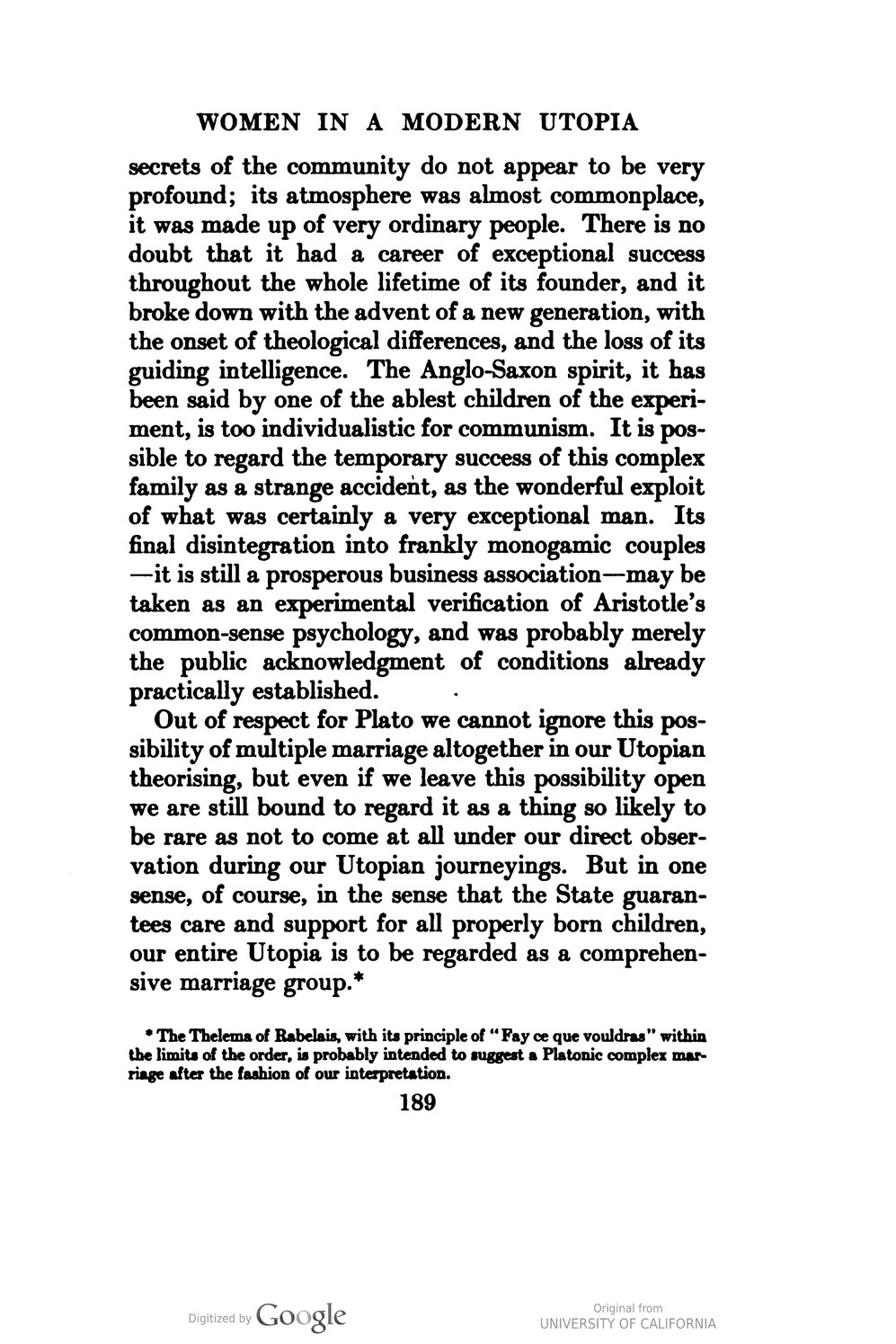WOMEN IN A MODERN UTOPIA
secrets of the community do not appear to be very profound; its atmosphere was almost commonplace, it was made up of very ordinary people. There is no doubt that it had a career of exceptional success throughout the whole lifetime of its founder, and it broke down with the advent of a new generation, with the onset of theological differences, and the loss of its guiding intelligence. The Anglo-Saxon spirit, it has been said by one of the ablest children of the experiment, is too individualistic for communism. It is possible to regard the temporary success of this complex family as a strange accident, as the wonderful exploit of what was certainly a very exceptional man. Its final disintegration into frankly monogamic couples—it is still a prosperous business association—may be taken as an experimental verification of Aristotle's common-sense psychology, and was probably merely the public acknowledgment of conditions already practically established.
Out of respect for Plato we cannot ignore this possibility of multiple marriage altogether in our Utopian theorising, but even if we leave this possibility open we are still bound to regard it as a thing so likely to be rare as not to come at all under our direct observation during our Utopian journeyings. But in one sense, of course, in the sense that the State guarantees care and support for all properly born children, our entire Utopia is to be regarded as a comprehensive marriage group.[1]
- ↑ The Thelema of Rabelais, with its principle of "Fay ce que vouldras" within the limits of the order, is probably intended to suggest a Platonic complex marriage after the fashion of our interpretation.
189
